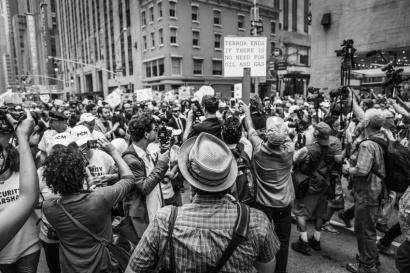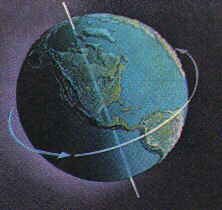 The term Neoliberal refers to all that is found linked or is typical of Neoliberalism.
The term Neoliberal refers to all that is found linked or is typical of Neoliberalism.
What is typical of Neoliberalism and supporter of this economic trend that defends the technocratic, focuses on the macroeconomic, and proposes minimal state intervention
And on the other hand, he will be called Neoliberal individual supporter of Neoliberalism.
The Neoliberalism is a economic policy that places the accent on the technocratic and macroeconomic, pretending reduce as much as possible the intervention of the state in everything that concerns the economic and social, through the defense of the capitalist free market as the best guarantor of the institutional balance and growth of a country.
Origins and distinctive signs
Developed from 1940, Neoliberalism, promotes the revival of classical liberalism, although he proposes an even more extreme position, because he claims the total abstention from the state, especially in the market economy.
The economy is considered the main engine of humanity's progress and therefore the rest of the aspects of life must be subordinated to it, including the political one.
Meanwhile, if the state owns companies, what a neoliberal government will promote when taking over power will be the sale of them to private companies, because it considers the management of a private company more efficient than that of the state, which is usually won by the corruption, when he is the owner of private companies.
Of course, there are exceptions, but a large part of the world's governments, especially those with a populist profile or those classified as social democrats, when they come to the government, and due to the imprint of their management, propose among other issues to recover state companies to manage them. per se, and there tend to be setbacks because corruption and unsuitability at work usually win.
That is, in these cases, which are the antipodes of neoliberalism, the state is considered the great and only executor in all areas and of course it is denied and practically prohibited any private company from managing any issue that they consider should be in the hands of the state.
This type of government demonizes neoliberalism and its practices and to a certain extent the latter also does the same with the excessive interference of the state in every aspect that governments with the aforementioned characteristics tend to implement.
The Classical Liberalism, for its part, is a philosophical current with aspects in the social, political and economic planes, which emerged with the Illuminism of the 18th century , which was promoted with the French Revolution. One of the most prominent references, Adam smith, proposed that the state should not intervene in economic matters, since it will be rearranged, raising or lowering the prices of products, according to the increase in demand or decrease in supply or vice versa.
Subsequently, and before the failure of the liberal model, the Socialism He would impose his idea of state interventionism to turn things around, redistributing goods unfairly in the hands of a few. One of its most famous measures has been to raise taxes on those economically better positioned individuals in order to protect the poorest classes and that these are not the ones that also pay for the well-off lives of a very few.
Once communism fails, Neoliberalism will emerge with great force, demanding the enjoyment of the right to private property, which was once criticized by the most fundamentalist communists.
Neoliberalism maintains that social welfare will be achieved by virtue of competition, which will lower prices if they are high, or will raise them if they are very low..
The macroeconomic policies proposed by liberalism are: restrictive monetary policies (increase interest rates or reduce the money supply to curb inflation and avoid a devaluation), restrictive fiscal policies (increase consumption taxes and decrease those corresponding to production and income), liberalization (both from trade and investment), privatization (State companies will go into private hands to gain effectiveness) and deregulation (reduction of laws to a minimum to boost the economy).
Supporters and detractors
As with all social, philosophical, political and obviously economic trends, there are voices in favor and voices against ... In the case of neoliberalism, we can find many detractors who argue that it is an absolutely unbalanced proposal that contributes to social injustice. precisely because it does not guarantee nor does it deal with guaranteeing the implementation of social policies that have the mission of ending social inequality or at least reducing it as much as possible.
Opponents of neoliberalism consider that this type of system does nothing more than widen the gap of existing social differences in almost all societies and especially in those less developed where this last issue becomes more uphill.
And on the side of the defenders of this current, among their fundamental arguments are that only economic prosperity will reach a context in which the state does not intervene as little as possible.









